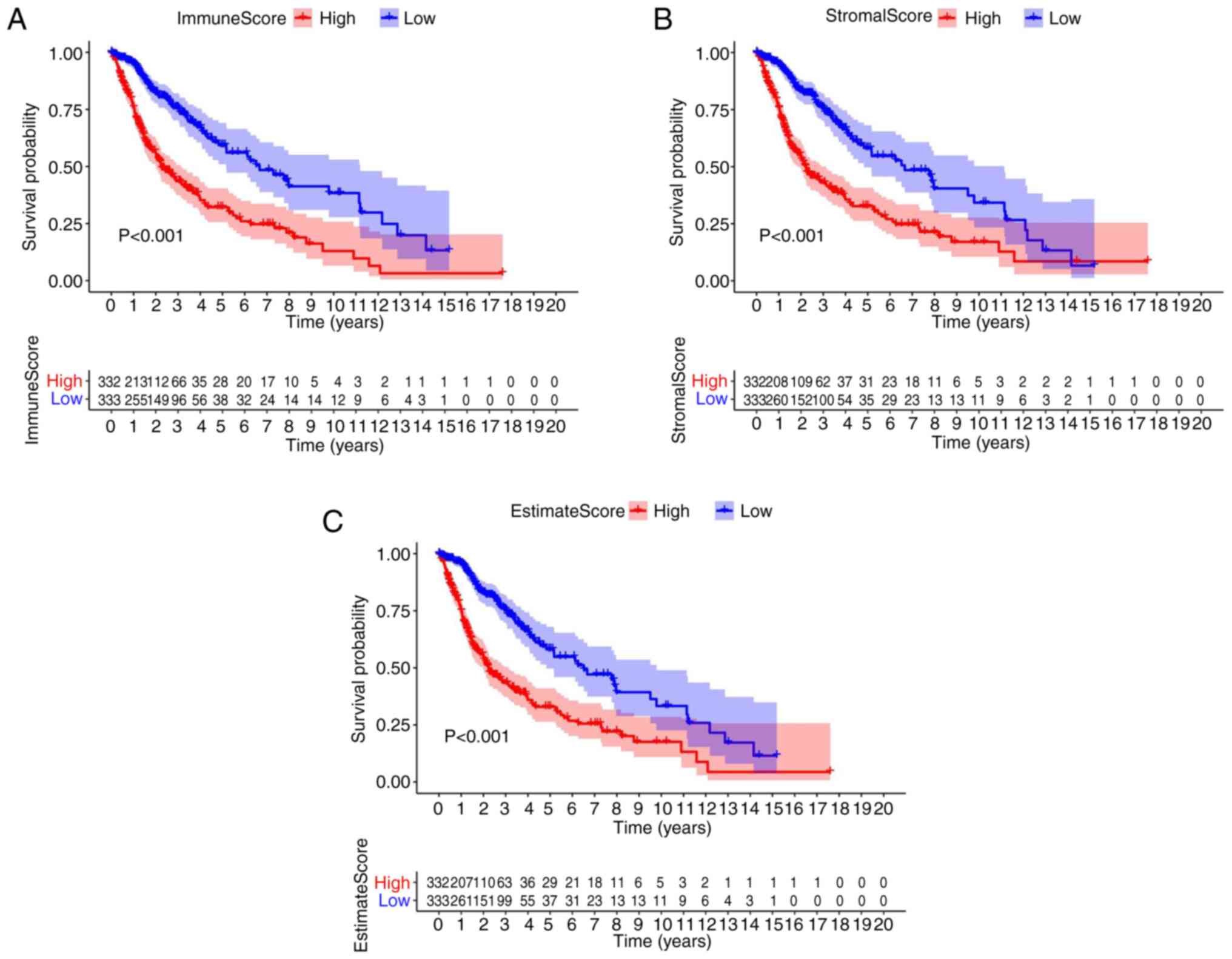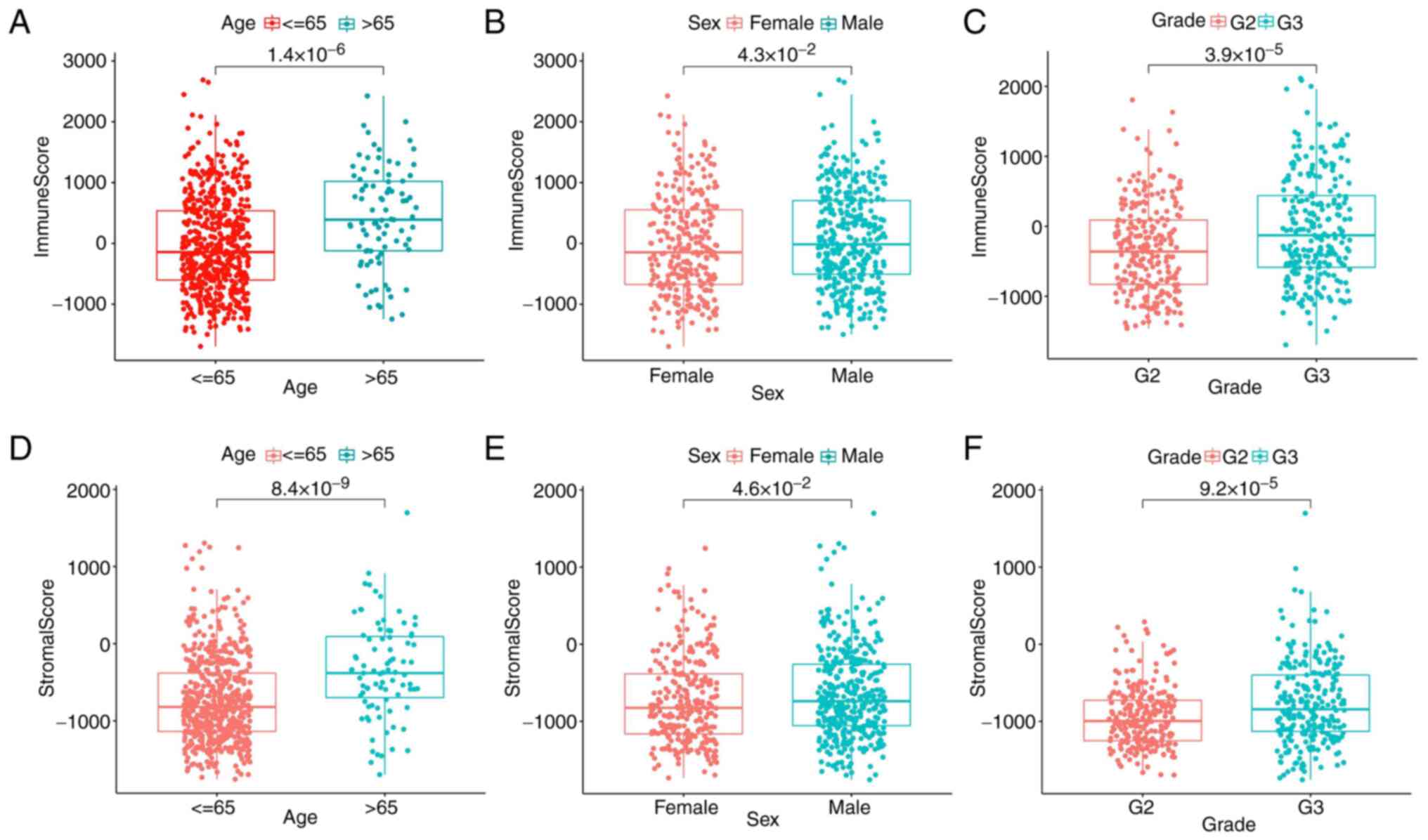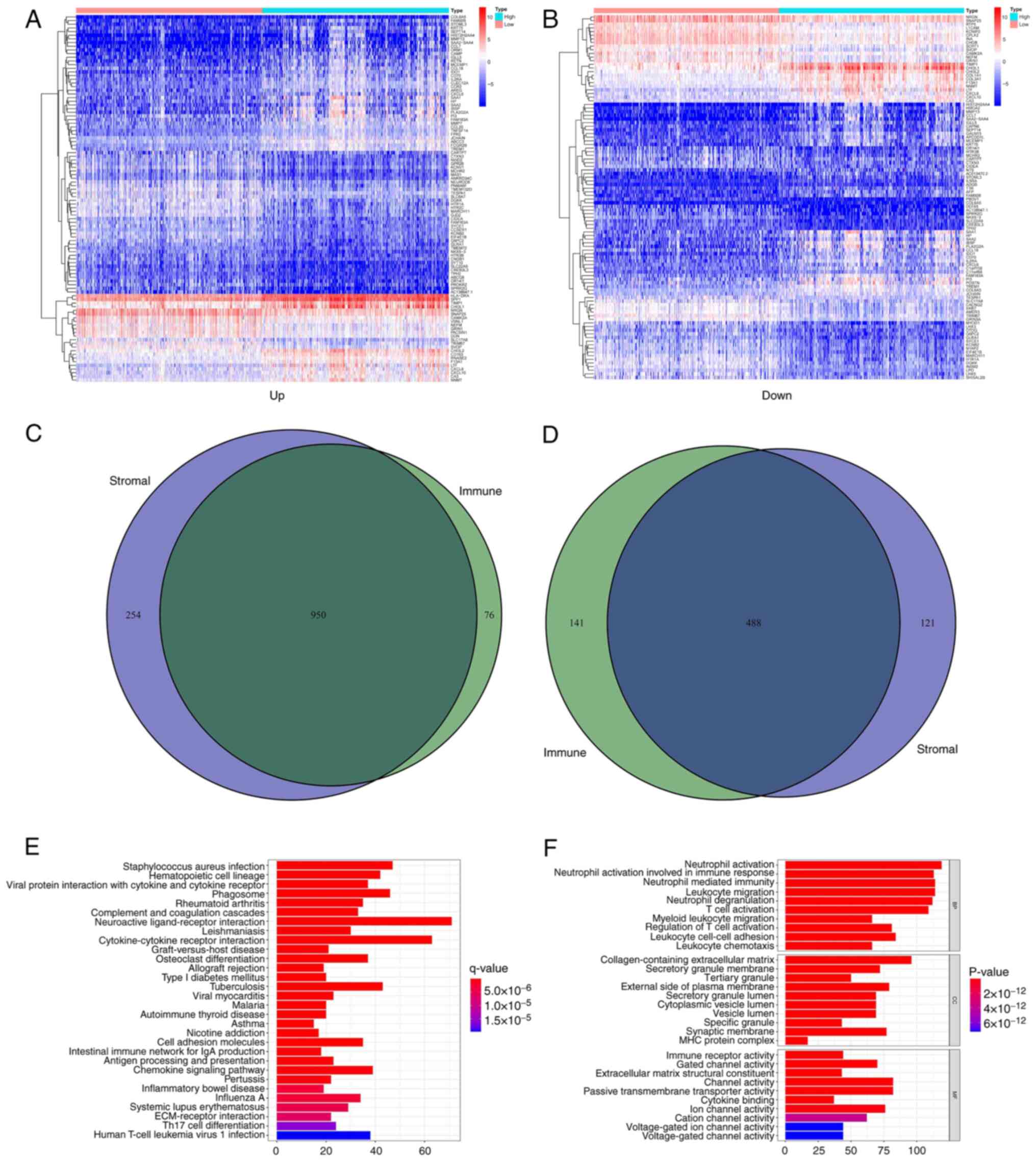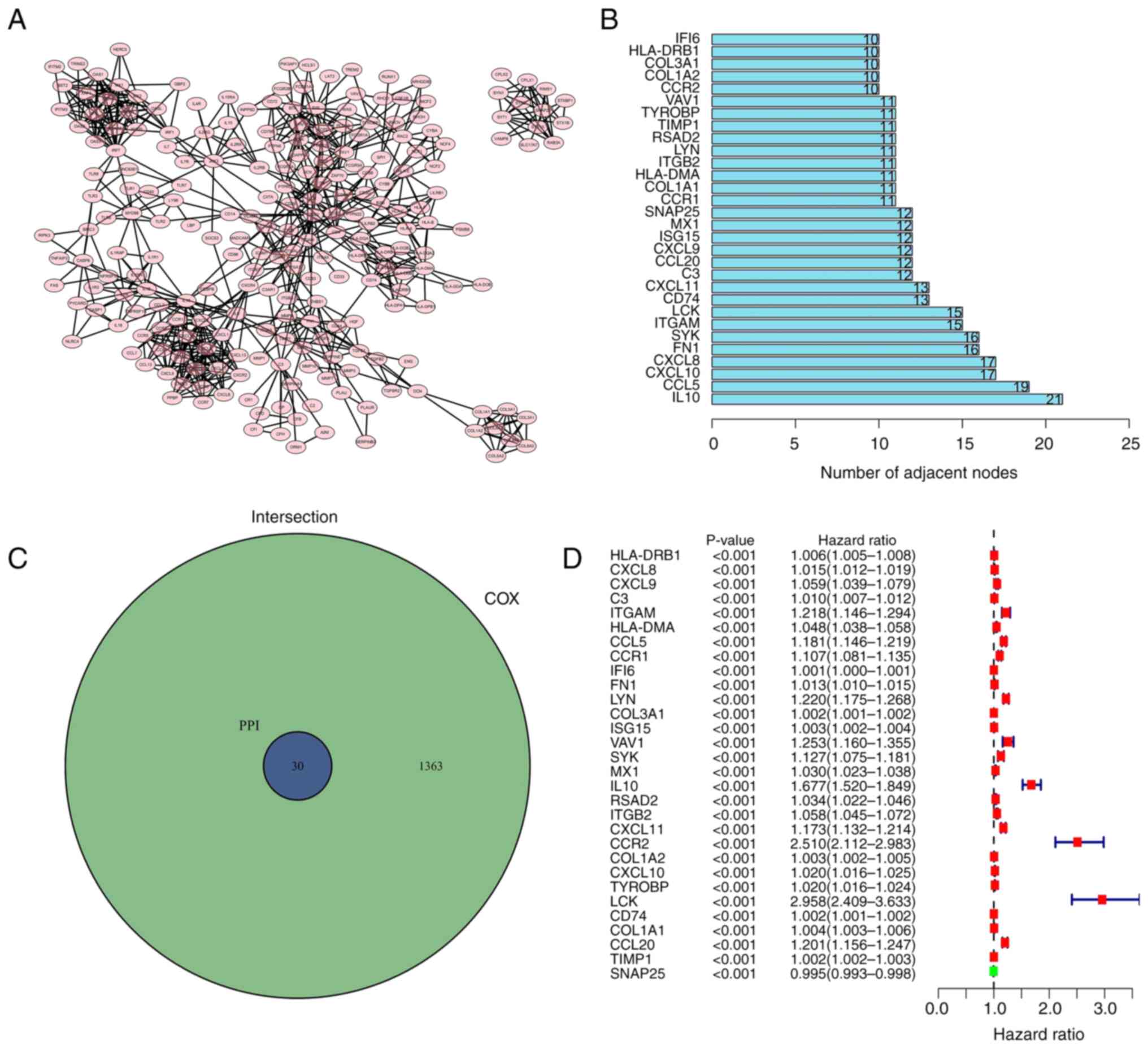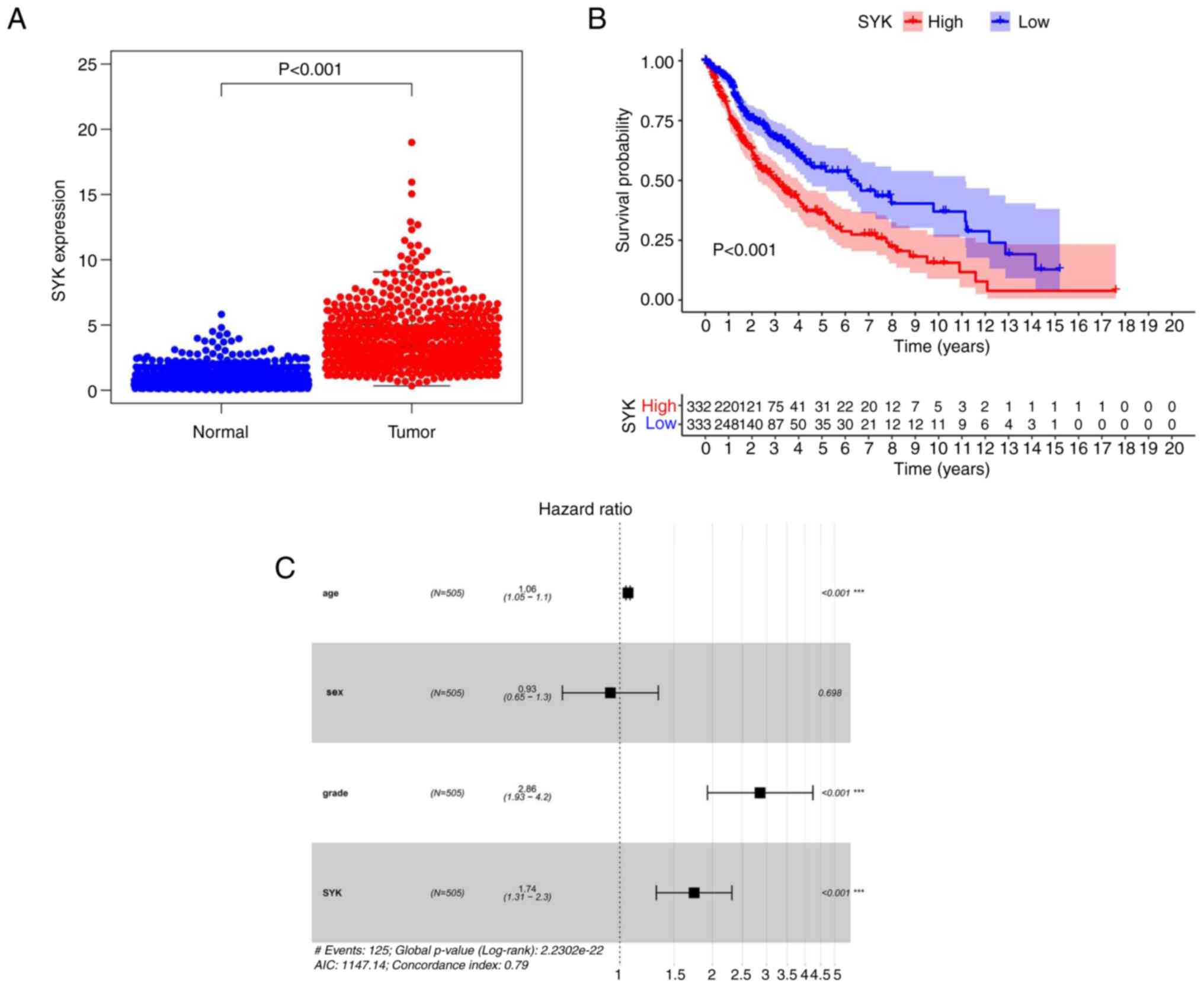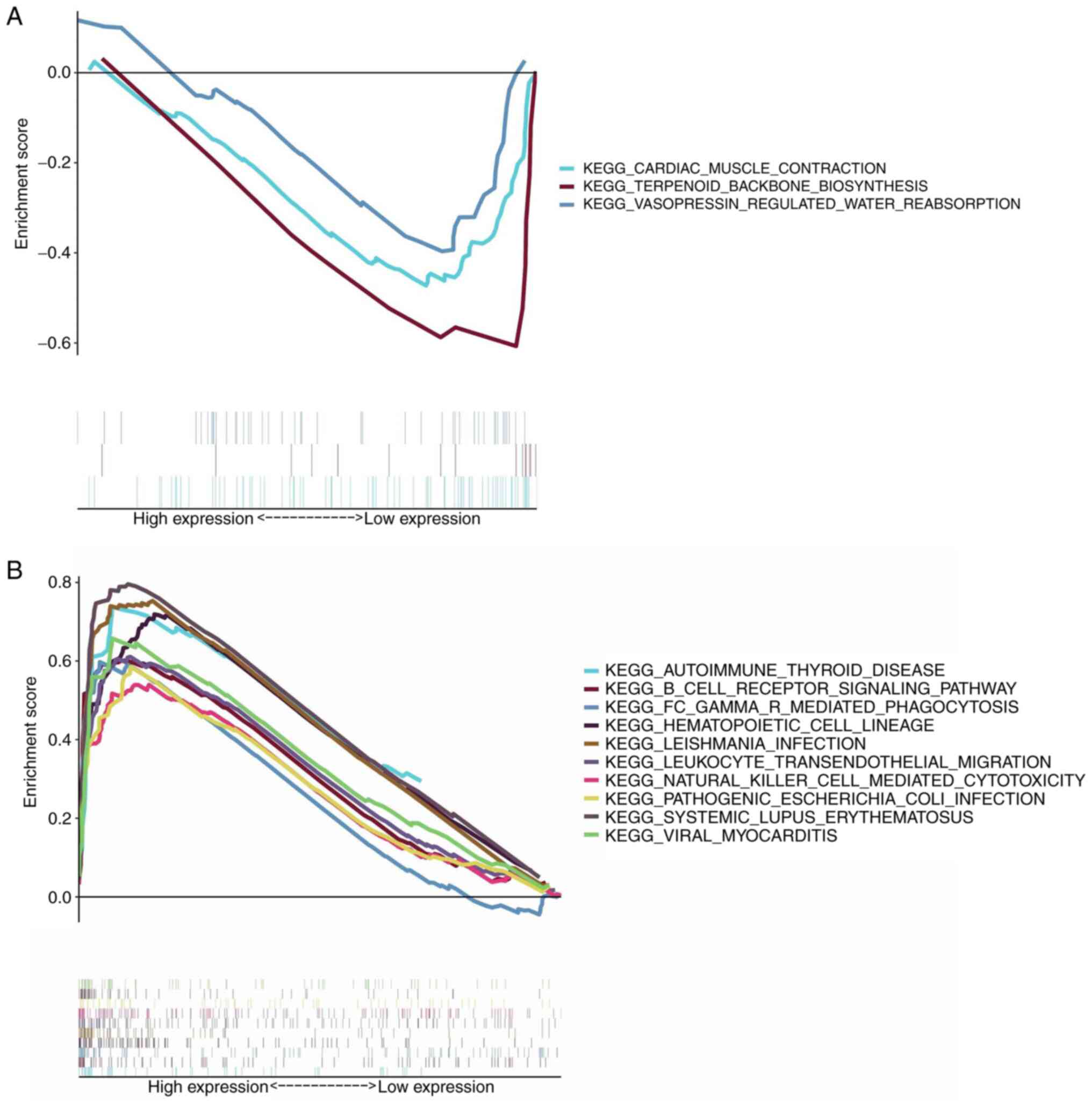|
1
|
Ostrom QT, Bauchet L, Davis FG, Deltour I,
Fisher JL, Langer CE, Pekmezci M, Schwartzbaum JA, Turner MC, Walsh
KM, et al: The epidemiology of glioma in adults: A ‘state of the
science’ review. Neuro Oncol. 16:896–913. 2014.PubMed/NCBI View Article : Google Scholar
|
|
2
|
Gigineishvili D, Shengelia N, Shalashvili
G, Rohrmann S, Tsiskaridze A and Shakarishvili R: Primary brain
tumour epidemiology in Georgia: First-year results of a
population-based study. J Neurooncol. 112:241–246. 2013.PubMed/NCBI View Article : Google Scholar
|
|
3
|
Lee E, Yong RL, Paddison P and Zhu J:
Comparison of glioblastoma (GBM) molecular classification methods.
Semin Cancer Biol. 53:201–211. 2018.PubMed/NCBI View Article : Google Scholar
|
|
4
|
Hinshaw DC and Shevde LA: The tumor
microenvironment innately modulates cancer progression. Cancer Res.
79:4557–4566. 2019.PubMed/NCBI View Article : Google Scholar
|
|
5
|
Roma-Rodrigues C, Mendes R, Baptista PV
and Fernandes AR: Targeting tumor microenvironment for cancer
therapy. Int J Mol Sci. 20(840)2019.PubMed/NCBI View Article : Google Scholar
|
|
6
|
Quail DF and Joyce JA: Microenvironmental
regulation of tumor progression and metastasis. Nat Med.
19:1423–1437. 2013.PubMed/NCBI View
Article : Google Scholar
|
|
7
|
Wood SL, Pernemalm M, Crosbie PA and
Whetton AD: The role of the tumor-microenvironment in lung
cancer-metastasis and its relationship to potential therapeutic
targets. Cancer Treat Rev. 40:558–566. 2014.PubMed/NCBI View Article : Google Scholar
|
|
8
|
Tomaszewski W, Sanchez-Perez L, Gajewski
TF and Sampson JH: Brain tumor microenvironment and host state:
Implications for immunotherapy. Clin Cancer Res. 25:4202–4210.
2019.PubMed/NCBI View Article : Google Scholar
|
|
9
|
Mollaoglu G, Jones A, Wait SJ,
Mukhopadhyay A, Jeong S, Arya R, Camolotto SA, Mosbruger TL,
Stubben CJ, Conley CJ, et al: The lineage-defining transcription
factors SOX2 and NKX2-1 determine lung cancer cell fate and shape
the tumor immune microenvironment. Immunity. 49:764–779.
2018.PubMed/NCBI View Article : Google Scholar
|
|
10
|
Liu P, Guo J, Xu X, Sun H and Gong Z:
Prognostic biomarker SYK and its correlation with immune
infiltrates in glioma. https://doi.org/10.21203/rs.3.rs-839283/v1.
|
|
11
|
Deng GM, Kyttaris VC and Tsokos GC:
Targeting syk in autoimmune rheumatic diseases. Front Immunol.
7(78)2016.PubMed/NCBI View Article : Google Scholar
|
|
12
|
Mócsai A, Ruland J and Tybulewicz VL: The
SYK tyrosine kinase: A crucial player in diverse biological
functions. Nat Rev Immunol. 10:387–402. 2010.PubMed/NCBI View
Article : Google Scholar
|
|
13
|
Krisenko MO and Geahlen RL: (2015) Calling
in SYK: SYK's dual role as a tumor promoter and tumor suppressor in
cancer. Biochim Biophys Acta. 1853:254–263. 2010.
|
|
14
|
Moncayo G, Grzmil M, Smirnova T, Zmarz P,
Huber RM, Hynx D, Kohler H, Wang Y, Hotz HR, Hynes NE, et al: SYK
inhibition blocks proliferation and migration of glioma cells and
modifies the tumor microenvironment. Neuro Oncol. 20:621–631.
2018.PubMed/NCBI View Article : Google Scholar
|
|
15
|
Robin X, Turck N, Hainard A, Tiberti N,
Lisacek F, Sanchez JC and Müller M: pROC: An open-source package
for R and S+ to analyze and compare ROC curves. BMC Bioinformatics.
12(77)2011.PubMed/NCBI View Article : Google Scholar
|
|
16
|
Ritchie ME, Phipson B, Wu D, Hu Y, Law CW,
Shi W and Smyth GK: Limma powers differential expression analyses
for RNA-sequencing and microarray studies. Nucleic Acids Res.
43(e47)2015.PubMed/NCBI View Article : Google Scholar
|
|
17
|
Subramanian A, Kuehn H, Gould J, Tamayo P
and Mesirov JP: GSEA-P: A desktop application for gene set
enrichment analysis. Bioinformatics. 23:3251–3253. 2007.PubMed/NCBI View Article : Google Scholar
|
|
18
|
Livak KJ and Schmittgen TD: Analysis of
relative gene expression data using real-time quantitative PCR and
the 2(-Delta Delta C(T)) method. Methods. 25:402–408.
2001.PubMed/NCBI View Article : Google Scholar
|
|
19
|
Yu Y, Rahmanto YS, Lee MH, Wu PH, Phillip
JM, Huang CH, Vitolo MI, Gaillard S, Martin SS, Wirtz D, et al:
Inhibition of ovarian tumor cell invasiveness by targeting SYK in
the tyrosine kinase signaling pathway. Oncogene. 37:3778–3789.
2018.PubMed/NCBI View Article : Google Scholar
|
|
20
|
Repana K, Papazisis K, Foukas P, Valeri R,
Kortsaris A, Deligiorgi E and Kyriakidis D: Expression of Syk in
invasive breast cancer: Correlation to proliferation and
invasiveness. Anticancer Res. 26:4949–4954. 2006.PubMed/NCBI
|
|
21
|
Layton T, Stalens C, Gunderson F, Goodison
S and Silletti S: Syk tyrosine kinase acts as a pancreatic
adenocarcinoma tumor suppressor by regulating cellular growth and
invasion. Am J Pathol. 175:2625–2636. 2009.PubMed/NCBI View Article : Google Scholar
|
|
22
|
Shakeel S, Mahjabeen I, Kayani MA and
Faryal R: Association of SYK genetic variations with breast cancer
pathogenesis. Asian Pac J Cancer Prev. 14:3309–3314.
2013.PubMed/NCBI View Article : Google Scholar
|
|
23
|
Qian Y, Zhai E, Chen S, Liu Y, Ma Y, Chen
J, Liu J, Qin C, Cao Q, Chen J and Cai S: Single-cell RNA-seq
dissecting heterogeneity of tumor cells and comprehensive dynamics
in tumor microenvironment during lymph nodes metastasis in gastric
cancer. Int J Cancer. 151:1367–1381. 2022.PubMed/NCBI View Article : Google Scholar
|
|
24
|
Xiao Y and Yu D: Tumor microenvironment as
a therapeutic target in cancer. Pharmacol Ther.
221(107753)2021.PubMed/NCBI View Article : Google Scholar
|
|
25
|
Taniguchi T, Kobayashi T, Kondo J,
Takahashi K, Nakamura H, Suzuki J, Nagai K, Yamada T, Nakamura S
and Yamamura H: Molecular cloning of a porcine gene syk that
encodes a 72-kDa protein-tyrosine kinase showing high
susceptibility to proteolysis. J Biol Chem. 266:15790–15796.
1991.PubMed/NCBI
|
|
26
|
Qu C, Zheng D, Li S, Liu Y, Lidofsky A,
Holmes JA, Chen J, He L, Wei L, Liao Y, et al: Tyrosine kinase SYK
is a potential therapeutic target for liver fibrosis. Hepatology.
68:1125–1139. 2018.PubMed/NCBI View Article : Google Scholar
|
|
27
|
Feng G and Wang X: Role of spleen tyrosine
kinase in the pathogenesis of chronic lymphocytic leukemia. Leuk
Lymphoma. 55:2699–2705. 2014.PubMed/NCBI View Article : Google Scholar
|
|
28
|
Sada K, Takano T, Yanagi S and Yamamura H:
Structure and function of Syk protein-tyrosine kinase. J Biochem.
130:177–186. 2001.PubMed/NCBI View Article : Google Scholar
|
|
29
|
Wang X, Guo J, Ning Z and Wu X: Discovery
of a natural syk inhibitor from chinese medicine through a
docking-based virtual screening and biological assay study.
Molecules. 23(3114)2018.PubMed/NCBI View Article : Google Scholar
|
|
30
|
Poe JC, Jia W, Di Paolo JA, Reyes NJ, Kim
JY, Su H, Sundy JS, Cardones AR, Perez VL, Chen BJ, et al: (2018)
SYK inhibitor entospletinib prevents ocular and skin GVHD in mice.
JCI Insight. 3(122430)2018.PubMed/NCBI View Article : Google Scholar
|
|
31
|
Singh R, Masuda ES and Payan DG: Discovery
and development of spleen tyrosine kinase (SYK) inhibitors. J Med
Chem. 55:3614–3643. 2012.PubMed/NCBI View Article : Google Scholar
|
|
32
|
Chen L, Monti S, Juszczynski P, Daley J,
Chen W, Witzig TE, Habermann TM, Kutok JL and Shipp MA:
SYK-dependent tonic B-cell receptor signaling is a rational
treatment target in diffuse large B-cell lymphoma. Blood.
111:2230–2237. 2008.PubMed/NCBI View Article : Google Scholar
|
|
33
|
Koerber RM, Held SAE, Heine A, Kotthoff P,
Daecke SN, Bringmann A and Brossart P: Analysis of the
anti-proliferative and the pro-apoptotic efficacy of Syk inhibition
in multiple myeloma. Exp Hematol Oncol. 4(21)2015.PubMed/NCBI View Article : Google Scholar
|
|
34
|
Joshi S, Liu KX, Zulcic M, Singh AR, Skola
D, Glass CK, Sanders PD, Sharabi AB, Pham TV, Tamayo P, et al:
Macrophage Syk-PI3Kγ inhibits antitumor immunity: SRX3207, a novel
dual Syk-PI3K inhibitory chemotype relieves tumor
immunosuppression. Mol Cancer Ther. 19:755–764. 2020.PubMed/NCBI View Article : Google Scholar
|
|
35
|
Mills CD, Kincaid K, Alt JM, Heilman MJ
and Hill AM: M-1/M-2 macrophages and the Th1/Th2 paradigm. J
Immunol. 164:6166–6173. 2000.PubMed/NCBI View Article : Google Scholar
|
|
36
|
Chanmee T, Ontong P, Konno K and Itano N:
Tumor-associated macrophages as major players in the tumor
microenvironment. Cancers (Basel). 6:1670–1690. 2000.PubMed/NCBI View Article : Google Scholar
|















